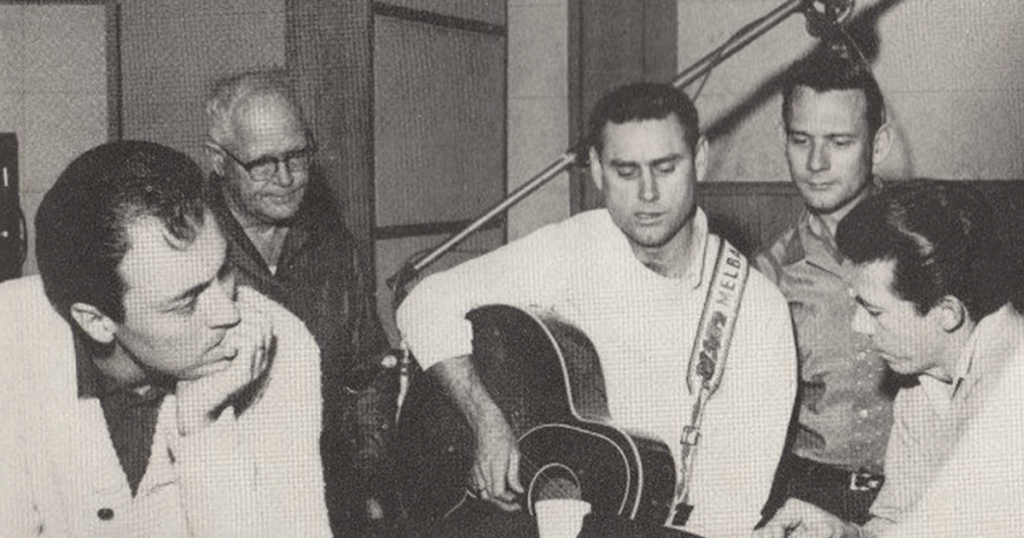
A Quiet Ache in the Shadows of Love Lost
When George Jones released “She Thinks I Still Care” in 1962, the song swiftly ascended to the top of the Billboard Hot Country Songs chart, etching itself into the fabric of American country music with a melancholy grace that felt both intimate and eternal. Featured on the album “The New Favorites of George Jones”, this haunting ballad became one of Jones’s signature songs—a testament not only to his incomparable vocal phrasing but to the aching universality of unspoken heartache.
Penned by Dickey Lee and Steve Duffy, “She Thinks I Still Care” is a masterclass in understated storytelling. At its surface, it appears to chronicle a man feigning indifference toward an ex-lover—recounting how he no longer calls her, doesn’t ask about her, and claims he’s moved on. But beneath that thin veil of denial lies a devastating truth: every act of supposed detachment is a signal flare of enduring love. The song’s brilliance resides in this emotional chiaroscuro—what is not said becomes more powerful than what is.
Jones delivers each line with a tenderness that borders on resignation, allowing silences and vocal cracks to communicate more than any declaration ever could. His interpretation is not simply performance—it is embodiment. He inhabits the lyric with such authenticity that one can’t help but believe he’s lived every syllable. In Jones’s hands, lines like “Just because I haunt the same old places where the memory of her lingers everywhere” cease to be lyrical flourishes and become living wounds.
Musically, the arrangement leans into simplicity—a gentle shuffle guided by steel guitar sighs and restrained rhythm. It is precisely this sparseness that allows Jones’s voice to hover at the center, unobscured, vulnerable. There is no need for ornamentation when the emotional terrain is so richly cultivated within the delivery itself.
“She Thinks I Still Care” emerged at a time when country music was navigating between its raw honky-tonk roots and smoother Nashville polish. Yet this track resists easy categorization—it carries the grit of traditional country sorrow while embracing a sophisticated melodic structure that broadens its emotional appeal. It was covered by countless artists—from Elvis Presley to Anne Murray—but none captured its subtle agony as poignantly as Jones.
More than six decades later, the song remains a touchstone for anyone who has tried—and failed—to bury their longing beneath bravado. Its enduring legacy lies not just in its chart success or numerous reinterpretations, but in its uncompromising honesty about how love never truly fades—it merely disguises itself in silence, in ritual, in shadows. And with George Jones as its vessel, that truth still echoes through every lonely jukebox and every quiet midnight drive.